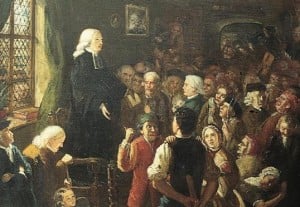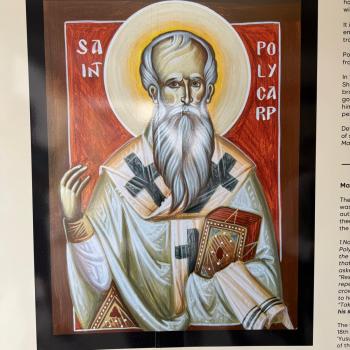I want in this particular post to talk about Bishop Sano’s understanding of Mt. 19.12. First of all here is the context—–
Vs. 3 Some Pharisees came to him to test him. They asked, “Is it lawful for a man to divorce his wife for any and every reason?”
4 “Haven’t you read,” he replied, “that at the beginning the Creator ‘made them male and female,’[a] 5 and said, ‘For this reason a man will leave his father and mother and be united to his wife, and the two will become one flesh’[b]? 6 So they are no longer two, but one flesh. Therefore what God has joined together, let no one separate.”
7 “Why then,” they asked, “did Moses command that a man give his wife a certificate of divorce and send her away?”
8 Jesus replied, “Moses permitted you to divorce your wives because your hearts were hard. But it was not this way from the beginning. 9 I tell you that anyone who divorces his wife, except for sexual immorality, and marries another woman commits adultery.”
10 The disciples said to him, “If this is the situation between a husband and wife, it is better not to marry.”
11 Jesus replied, “Not everyone can accept this word, but only those to whom it has been given. 12 For there are eunuchs who were born that way, and there are eunuchs who have been made eunuchs by others—and there are those who choose to live like eunuchs for the sake of the kingdom of heaven. The one who can accept this should accept it.”
As I said in a previous post, the Bible has nothing to say about ‘sexual orientation’, but it is clear enough about sexual behavior. It calls for fidelity in marriage and celibacy in singleness, as Mt. 19 says and our UMC Discipline reiterates. And this brings me to Bishop Sano’s mis-use of a text like Mt. 19.12.
Jesus is talking about exactly two options: 1) fidelity in marriage defined clearly as heterosexual monogamy (notice the clear reference to God creating us male and female); and 2) being a eunuch.
Now eunochoi in antiquity were most certainly not gay or lesbian persons. They were persons who: 1) either had a birth defect in regard to their genitals, 2) were castrated by others, or 3) even made themselves eunuchs by self-castration. In other words we are dealing not with people who engaged in non-heterosexual sexual activity, we are dealing with people who had been incapacitated from engaging in normal sexual activity at all!
Mt. 19.12 has been seized on by the gay community because it refers to people who were ‘born that way’. Unfortunately, they ignore altogether the rest of what Jesus says in that verse– namely that some eunochoi have been made that way by others or even by themselves! All the gay and lesbian persons I know would be very upset with the notion that somebody else made them gay, or that they made themselves gay. To the contrary, their argument is that they’ve always been this way, since birth. The fact that Jesus mentions three ways to become a eunuch absolutely rules out the notion that he is talking about homosexual persons on the basis of the logic of the gay community itself.
Sometimes Isaiah 56.3-5 is brought into the discussion at this juncture. This text is important because it refers to a situation in the future where eunuchs could be included within Biblical worship, whereas previously they had been excluded because they were not ‘whole’. This text can indeed be used to suggest that people who might have previously been excluded from worship can now be included and welcomed. This of course has nothing to do with sexual behavior, it has to do with inclusion in worship. It could be used as a basis to say that Christian worship should be ‘welcoming’ to all persons, regardless of their physical conditions, abnormalities, handicaps.
It says absolutely nothing about whether Israel or the church should be affirming of certain previously banned sexual behaviors, nor does it imply anything about that. What is interesting about this text is what we are told the eunuch says about himself, namely ‘I am a dry tree’. That is, because of the condition of his genitals or lack thereof, he cannot ‘be fruitful and multiple’, he cannot produces the sperm (usually euphemistically called ‘water’ in early Judaism) that could make him fruitful. Clearly enough, this text is not a discussion about gay men whose equipment is working fine or about any sort of gay or lesbian behavior.
Returning to Mt. 19, the basic exegesis of Mt. 19.3-12 makes perfectly clear that Jesus is not talking about gays or lesbians when he mentions eunuchs, and indeed the only sort of marriage he endorses here is heterosexual monogamy.
Clearly, marriage is only under discussion when Jesus refers to heterosexual monogamy. It is not under discussion when he refers to being eunuchs for the sake of the kingdom. In fact, not only is Jesus not enunciating a more broad definition of marriage and divorce here, he is actually suggesting a more restrictive view than was current in early Judaism, which is precisely why his disciples protest— “if that is the way it is between a man and a woman, it’s better not to marry.’.
Notice as well where that retort comes— just before Jesus’ comment on being eunuchs. Jesus is saying “if you can’t handle a Biblical marriage, then you should remain single and chaste (like eunuchs, for the sake of the kingdom’). In other words, the traditional exegesis of this whole passage is right—- Jesus defines marriages as heterosexual monogamy and the only alternative he allows is celibacy in singleness. Period.
This of course may be an inconvenient truth for some in our UM Church, but it is a truth which Jesus himself has enunciated. So quite to the contrary of what Bishop Sano has suggested, Jesus is not inaugurating a radically different view of: 1) marriage, and 2) sexual morality than was common in early Judaism. To the contrary, he has intensified the traditional view of marriage by in effect saying Moses’ permissions for divorce do not apply as the Kingdom is breaking in (see Mark 10 and 1 Cor. 7).
Christian ministers should not be celebrating gay or lesbian couplings because by the Biblical definition they are not Christian marriages. A relationship which does not involve both male and female has no sanction from Jesus not least because it has no possibility of involving both husbands and wives who have at least the constitutional potential to become mothers and fathers. Marriage, Biblically speaking, has as one of its essential components (though not the only one) the ability to fulfill the creation order mandate to populate the species.
A relationship that by its very nature cannot create a coupling that turns male and female into both husbands and wives and potentially into parents is not a Christian marriage. And while we are at it, every child ought to have the right to have a father and a mother, and needs them— hopefully their birth parents, but if not, good adoptive mothers and fathers.
It is understandable that in a narcissistic and ‘my rights are paramount’ culture, people might think about marriage simply in terms of one’s own satisfaction and desires, but what should have been thought of first is the consequences of a relationship, including the consequences for the children, if there are any. In regard to the issue of ‘welcoming’ and ‘affirming’ these are two different issues. All persons are welcome to come to the church as they are. No one is welcome to stay as they are since we are all sinners. Everyone is expected to change, and no one should expect to have their sin baptized and called good by the church.
Finally, sometimes Acts 15 has been used as a basis to ‘canonize’ radical diversity in the modern church. This comes from a very poor reading of Acts 15. There was certainly a spectrum of opinions on whether Gentiles needed to become Jews in order to be fully considered followers of Jesus, but this was a matter of praxis (do they need to be circumcised, keep Kosher food laws, keep the sabbath). James, a moderating figure, concluded this was not necessary, but he did indeed impose on Gentiles four stipulations— namely staying away from idols, idol temples, meals in idol temples where the supposed deity presided (and so it was a religious meal), and to stay away from porneia, in other words any and all forms of sexual immorality. In early Jewish literature this would include same sex, sexual activity. In other words, the Acts 15 council decision provides the opposite of a sanction for justifying modern contradictory opinions on the issue of homosexuality.
In my next and final post on this matter, I am going to suggest a way forward beyond the current impasse in the United Methodist Church.














